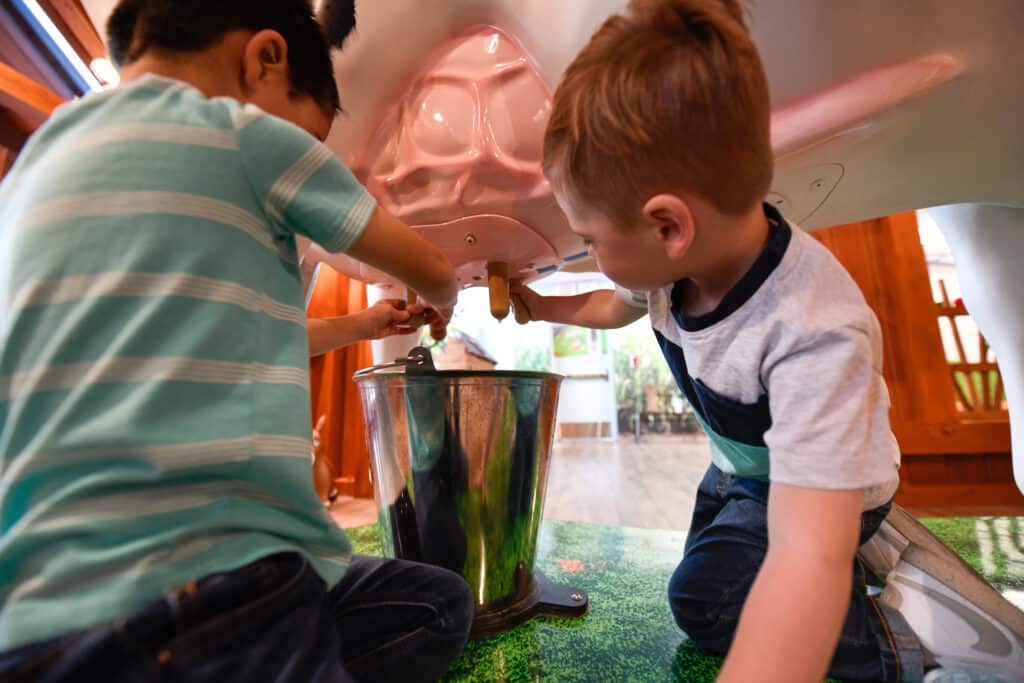By Silvia Steele
“A friend is one of the nicest things you can have, and one of the best things you can be.”
― Douglas Pagels

Play dates, birthday parties and laughter-there is no better feeling than knowing your child has friends. Making friends isn’t always easy though. It can be especially difficult for children who may be shy or have difficulty with communication or social skills. Parents are often at a loss to know what to do.
There are many ways to help facilitate friendships in young children. Just like literacy and math skills, social skills are an important area of learning that can be taught and practiced. Children spend most of their time socializing and learning through play. Play skills typically develop slowly, over time. You may observe your toddler keeping toys to themselves, your 3-year-old playing side by side with others, and older preschoolers starting to play cooperatively. Along the way, there are a few key play skills that you can teach that may help your child make, and become a better friend.
Organizing Play – this is often observed during pretend play. Children will suggest scenarios and play ideas. You can encourage this skill and practice at home. Play pretend with your child and ask them, “What do you want to play?” “Should I be the cashier or the customer?” Have them tell you what to say or do in your role. This is especially important to practice with children who are shy or have anxiety in social situations. Children can also use pictures to make play choices and initiate play with others.
Sharing – this can be as simple as asking for a turn or learning to wait until someone else is finished with a toy. Grabbing toys from others and protesting “Mine!” is normal for young children. Sharing is a skill that is learned through practice. Demonstrate asking, “Can I play?” or “I want a turn please.” Also make sure your child knows it is ok to tell another child that they are still playing and aren’t ready to share yet. Children can learn patience. It is ok to have to wait or choose a different activity. Setting a timer can help by providing a visual cue so your child knows their turn is coming up.
Assisting Others – being a helper and teaching empathy helps children to learn to become a better friend. The easiest way to teach empathy is to have children ask, ”Are you ok?” Teach young children about different emotions and how to look at facial expressions for clues to know what others may be feeling. Also teach them to ask for help from others when they need it. These small back-and-forth interactions of caring for each other is often how friendships grow.
Giving Compliments– this is especially important to model for older children. Think beyond, “good job!” and focus on process, not product. It is best to let a child know that their effort is important regardless of the outcome. “I noticed…” statements are a great way to start. “I noticed how you kept trying when it didn’t work the first time!” “I noticed you gave your sister a hug when she was sad.” etc.
It takes time to develop friendships, but parents can help children along the way by being good models and demonstrate how to be caring toward others.
Books about friendship for children
Join in and Play by Cheri J. Meiners
Good Rosie by Kate DiCamillo
Can I Play Too? By Mo Willems
Our Friend Hedgehog by Lauren Castillo
Meesha Makes Friends by Tom Percival
Strictly No Elephants by Lisa Mantchev
Frank and Bean by Jamie Michalak
Gail E. Joseph, Ph.D. & Phillip S. Strain, Ph.D. Center on Evidence Based Practices for Early Learning University of Colorado at Denver. (2003)
https://www.firstfiveyears.org.au/child-development/making-friends-how-to-help-your-child
